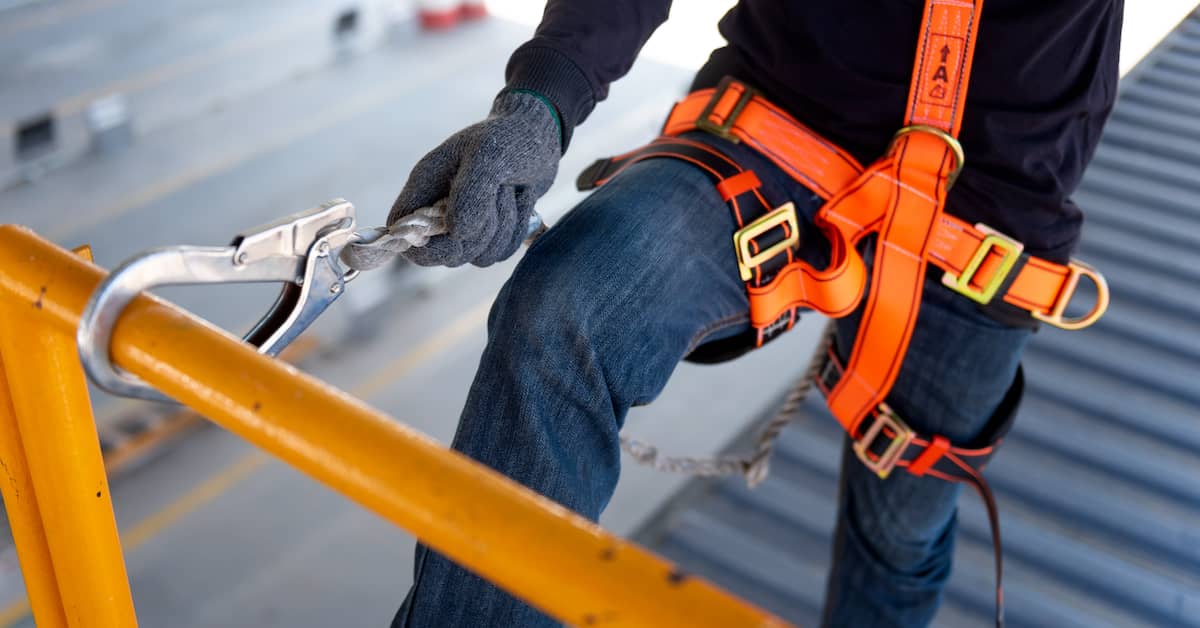
No one wants to think about falling from heights working construction, but falls are the leading cause of death on construction sites. And frankly, you don’t even have to fall far to suffer deadly consequences. A tumble from as little as six feet can be lethal.
According to the Bureau of Labor Statistics, “construction and extraction occupations had the second most occupational deaths (951) in 2021.” Construction is a dangerous job. However, being aware of the risks and causes of falls in construction might end up saving your life.
If a fall is unavoidable, knowing what steps to take afterward is crucial. The laws in Texas do not side with the workers. Therefore, if you are injured or a loved one was hurt or died from falling from heights working construction, you may need to explore your legal options for compensation.
Patrick Daniel Law can help. Call our experienced Houston construction lawyer at (713) 999-6666 for a FREE consultation.
Falls are hands-down the most significant cause of injury and death in the construction industry. The first step in protecting yourself from a devastating fall is to know why they are so prevalent. Here, we list the most common reasons for falls:
It is an employer’s General Duty to provide workers with a “safe and healthful workplace that is free from serious recognized hazards.” Yet, even though fall protection in construction is required when working above 6 feet, it is still the Occupational Safety and Health Administration’s (OSHA) number one most frequently cited standard.
When working at great heights, it is vital to have dependable safety equipment to reduce the risk of a fall. Depending on the type of work being performed, OSHA requires:
These safety systems must meet OSHA’s regulations. Common violations include:
Ensure that fall protection is adequate before working at great heights. If there is still a fall involving you or a loved one, call a lawyer as soon as possible to ensure the incident is thoroughly investigated.
Unfinished roofs are another major cause of falling from heights in construction. Roofs that are still under construction often present hazards around:
These hazards are compounded when the proper safety equipment isn’t used or the site is organized poorly.
In the first half of 2022, 11 falls from aerial lifts were reported to OSHA. Seven of those falls resulted in death. Aerial lifts consist of any vehicle-mounted machine used to elevate workers, including:
The causes of most falls from aerial lifts are:
Unfortunately, aerial lift accidents can also injure or kill those on the ground below.
Ladders aren’t any safer than mechanical lifts. Even though most ladders do not extend to great heights, they are considered fall hazards in construction. A worker could still suffer a brain injury, spinal cord damage, or other catastrophic trauma in a fall from a ladder.
To avoid accidental falls, ladders:
A misstep, slip, or trip could be fatal when working at great heights. It is imperative that workspaces are kept uncluttered and spills are cleaned up immediately.
Workers use scaffolding as a temporary platform from which they can perform their jobs at great heights. Additionally, scissor lifts are considered by OSHA to be a form of scaffolding.
The most common types of scaffolding falls are due to:
Identifying the multiple legal issues involved in a scaffold fall may be difficult. Discussing the accident with a lawyer is always in the victim’s best interest.
A fall from heights working construction may cause any number of severe injuries, including:
Injuries sustained in a fall may result in permanent disability, impacting the worker’s physical and emotional health as well as their financial well-being. The loss and devastation of a construction-related injury or death will also have an overwhelming effect on the worker’s family. When these terrible falls occur, it is important to contact a knowledgeable attorney who can pursue the appropriate compensation.
If you are injured in a fall while working construction, you may have recourse to workers’ compensation benefits. However, Texas allows employers to opt out of the workers’ compensation system. When you work for a non-subscribing employer, you retain the right to sue your employer for injuries sustained on the job.
You may be entitled to recover the following damages after suffering an injury in a construction accident:
In the event that your family member has passed away due to a fall while working construction, you may be able to claim workers’ compensation death benefits. However, if their employer is a non-subscriber, you may need to file a wrongful death claim against the at-fault party. The surviving spouse, children, or parents are eligible to do so.
You may be entitled to compensation for:
Falls in construction are far too common. It will benefit construction workers to know the risks and do what they can to protect themselves. Still, employers will cut corners, and accidents will happen. If you are injured or a loved one dies in a fall, please contact a lawyer to ensure you receive the proper compensation for your terrible loss.
Falling from heights working construction is terrifying, painful, and even deadly. Sadly, employers and insurance companies will always look out for their own interests, often disputing claims for fault. That’s why it is essential that you contact an experienced Houston, Texas, construction accident lawyer.
Determining liability in a fall on a construction site is a complex task. Patrick Daniel Law can help pursue all available options for obtaining compensation. Contact us today for a FREE consultation.
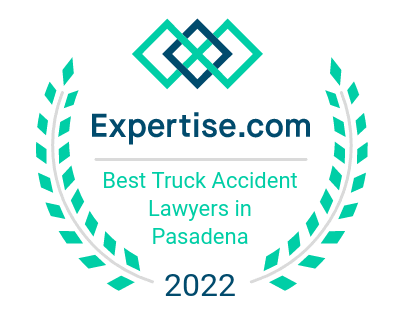 Top Truck Accident Lawyer in Pasadena
Top Truck Accident Lawyer in Pasadena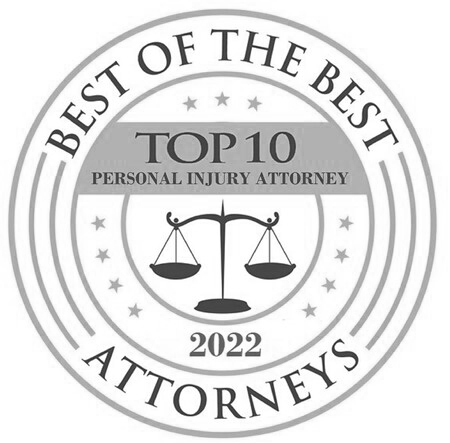 Best of The Best Attorneys
Best of The Best Attorneys Best of the Best Houston Chronicle 2021
Best of the Best Houston Chronicle 2021 Best Motorcycle Accident Lawyers in Houston 2021
Best Motorcycle Accident Lawyers in Houston 2021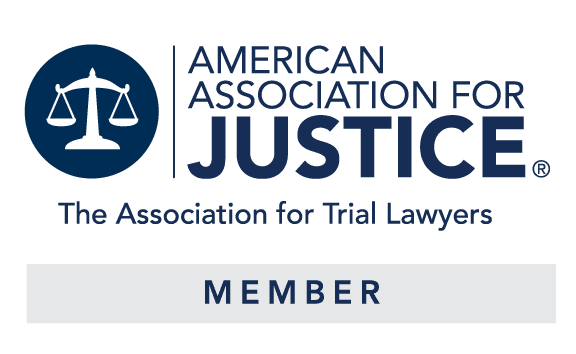 American Association for Justice Member
American Association for Justice Member The National Trial Lawyers 2016 – (Top 40 under 40)
The National Trial Lawyers 2016 – (Top 40 under 40) Multi-Million Dollar Advocates Forum 2016 (Top Trial Lawyer)
Multi-Million Dollar Advocates Forum 2016 (Top Trial Lawyer) Million Dollar Advocates Forum 2019 (Top Trial Lawyer)
Million Dollar Advocates Forum 2019 (Top Trial Lawyer) America’s Top 100 Attorneys 2020 (High Stake Litigators)
America’s Top 100 Attorneys 2020 (High Stake Litigators) Lawyers of Distinction 2019, 2020 (Recognizing Excellence in Personal Injury)
Lawyers of Distinction 2019, 2020 (Recognizing Excellence in Personal Injury)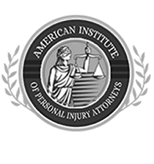 American Institute of Personal Injury Attorneys 2020 (Top 10 Best Attorneys – Client Satisfaction)
American Institute of Personal Injury Attorneys 2020 (Top 10 Best Attorneys – Client Satisfaction) American Institute of Legal Advocates 2020 (Membership)
American Institute of Legal Advocates 2020 (Membership)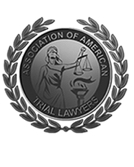 Association of American Trial Lawyers 2018 - Top 100 Award recognizing excellence in personal injury law
Association of American Trial Lawyers 2018 - Top 100 Award recognizing excellence in personal injury law American Institute of Legal Professionals 2020 (Lawyer of the Year)
American Institute of Legal Professionals 2020 (Lawyer of the Year) Lead Counsel Verified Personal Injury 2020
Lead Counsel Verified Personal Injury 2020 The Houston Business Journal 2021
The Houston Business Journal 2021